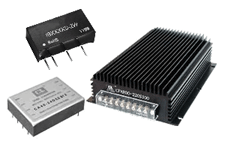DC/DC power supply has electronic circuits that convert one DC voltage level to an alternative. These can be employed to provide regulated, unregulated, standard, high isolation or extra wide input voltage many different applications. They can also focus on the top voltage power supply necessary for your preferences.

Modern DC/DC Power Supply: Benefits
Unlike traditional systems, modern power supplies don’t need enormous energy to produce the actual required output. They are sophisticated devices that deliver enhanced outputs from lv or energy. They can are powered by a battery which enable it to have multiple modes of input. Today’s dc-dc converter manufacturer doesn’t have cables, carries a compact design, and is compliant with all the latest standards with certification of safety and compliance. In addition, it eliminates the necessity for unnecessary wires because they can be directly attached to the equipment. They function silently, may be installed or shifted easily and is compatible with a variety of equipment. They are also highly efficient and do not produce much heat. These could be custom-built or made to fit small form factor boards to save lots of space.
DC/DC Power Supply Converters: Ideas to Consider Before Purchase
Here are several areas to consider prior to buying converters:
1. Input and output voltage: Should you be looking for voltage step up, opt for a boost or buck-boost converter; for voltage step down, get a buck or buck-boost converter. For negative output voltage, an inverting topology is the better option. In case you are receiving a DC/DC converter for automotive applications, ensure that it will likely be capable of withstand load-dump, cold-crank and varying temperature conditions (from -40 degrees to +125 degrees Celsius).
2. Make certain that output voltage will continue to be from the specifications, no matter what load. It shouldn’t overshoot the maximum value or undershoot the minimum if the load changes quickly derived from one of extreme to the other.
3. It is possible to choose those with either Pulse-Width Modulation (PWM) or Pulse-Frequency Modulation (PFM) control schemes. While PWM can be used in applications where switching noise may affect other processes, PFM can be used in applications that want top quality at small loads and low quiescent current.
For more info about dc-dc converter manufacturer go to see our site: this site
